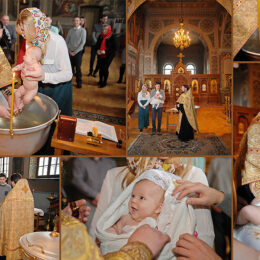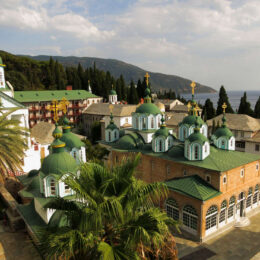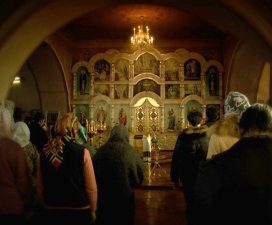New York Times DAVID BROOKS
What explains success? What forces drive some nations and individuals to move forward and grow rich while others stagnate? These happen to be the most important questions in the social sciences today.
In the scholarly arena, you see an array of academic gladiators wielding big books and offering theories.
Over here are the material determinists. Jared Diamond, with his million-selling “Guns, Germs, and Steel,” says the West grew rich not because of any innate superiority, but because Europeans happened to have the right kinds of plants. Felipe Fernández-Armesto, with his tome, “Civilizations,” argues that success is determined by climate and geography.
Over there are the cultural determinists. Thomas Sowell argues that ethnic groups develop their own skills and values and thrive or suffer as they compete, conquer and migrate. In his great opus, “The Wealth and Poverty of Nations,” David Landes shows how cultural mores shaped European empires and the Industrial Revolution.
Now another academic heavyweight has entered the arena. In his new book, “The Victory of Reason,” the Baylor sociologist Rodney Stark argues that the West grew rich because it invented capitalism. That’s not new. What’s unusual is his description of how capitalism developed.
The conventional view, embraced by most of his fellow cultural determinists, is that during the Renaissance and Reformation, Europeans shook off the authority of the Catholic Church. When a secular world was created alongside the sacred one, when intellectual freedom replaced obedience to authority, capitalism and scientific advances were the result.
That theory, Stark says, doesn’t fit the facts. In reality, capitalism developed in the Middle Ages, and the important innovations were made by people in the belly of the faith. Religion didn’t stifle economic and scientific ideas – it nurtured them.
Stark is building upon the recent research that has reversed earlier prejudices about the so-called Dark Ages. As late as 1983, the esteemed historian Daniel Boorstin could write a chapter on the Middle Ages entitled “The Prison of Christian Dogma.”
But the more we learn, the more we realize that most of the progress we link to the Renaissance or later years actually happened during the Middle Ages. Roughly a hundred years before Copernicus, Jean Buridan (circa 1300-1358) wrote that the Earth is an orb rotating on an axis. Buridan, a rector of the University of Paris, was succeeded by Nicole d’Oresme (1323-1382), who explained why the rotation of the Earth doesn’t produce wind.
Other medieval Scholastics made the same sort of discoveries in economics and technology. Five hundred years before Adam Smith, St. Albertus Magnus explained the price mechanism as what “goods are worth according to the estimate of the market at the time of sale.”
Catholic monasteries emerged as capitalist enterprises, serving not only as manufacturing and trading centers, but also as investment houses. And engineers invented or commercialized a vast array of technologies: the compass, the clock, the round-bottom boat, wagons with brakes and front axles, water wheels, eyeglasses, and so on.
These innovations and discoveries, Stark argues, were not made by the newly secular, but by people who had a distinctly Christian sense of the sacred. Catholic theology had taught them that God had created the universe according to universal laws that reason could discover. It taught that knowledge and history moves forward progressively, so people should look to the future, not the past.
The church recognized the dignity of free labor at a time when most other cultures did not. It valued private property and emphasized the essential equality of human beings despite their unequal incomes and stations.
This history is important today. (And not only because Albertus Magnus knew more about reconciling faith and reason 700 years ago than the bogus culture warriors do now.) It’s important because whether we are dealing with poverty around the world or at home, it is not enough to simply liberate people and assume they will automatically pursue economic prosperity. People need to be instilled with certain beliefs, like the belief that the future can be better than the present and that individuals have the power to shape their own destiny.
Ideas and culture drive civilizations. The Catholic Church nurtured one of the most impressive economic takeoffs in human history. Today, as Catholicism spreads in Africa and China, it’s important to understand the beliefs that encourage people to work hard and grow rich.




2 Thessalonians 3:10
10For even when we were with you, we gave you this rule: “If a man will not work, he shall not eat.”
Colossians 3:23
23Whatever you do, work at it with all your heart, as working for the Lord, not for men,
1 Thessalonians 4
11Make it your ambition to lead a quiet life, to mind your own business and to work with your hands, just as we told you, 12so that your daily life may win the respect of outsiders and so that you will not be dependent on anybody.
Franklin D. Roosevelt, the leader of the Greatest Generation, explained why the success of capitalism depends on a strong social safety net:
“It is our duty now to begin to lay the plans and determine the strategy for the winning of a lasting peace and the establishment of an American standard of living higher than ever before known. We cannot be content, no matter how high that general standard of living may be, if some fraction of our peopleâ??whether it be one-third or one-fifth or one-tenthâ??is ill-fed, ill-clothed, ill-housed, and insecure.
This Republic had its beginning, and grew to its present strength, under the protection of certain inalienable political rightsâ??among them the right of free speech, free press, free worship, trial by jury, freedom from unreasonable searches and seizures. They were our rights to life and liberty.
As our nation has grown in size and stature, howeverâ??as our industrial economy expandedâ??these political rights proved inadequate to assure us equality in the pursuit of happiness.
We have come to a clear realization of the fact that true individual freedom cannot exist without economic security and independence. â??Necessitous men are not free men.â?? People who are hungry and out of a job are the stuff of which dictatorships are made.
In our day these economic truths have become accepted as self-evident. We have accepted, so to speak, a second Bill of Rights under which a new basis of security and prosperity can be established for allâ??regardless of station, race, or creed.
Among these are:
The right to a useful and remunerative job in the industries or shops or farms or mines of the nation;
The right to earn enough to provide adequate food and clothing and recreation;
The right of every farmer to raise and sell his products at a return which will give him and his family a decent living;
The right of every businessman, large and small, to trade in an atmosphere of freedom from unfair competition and domination by monopolies at home or abroad;
The right of every family to a decent home;
The right to adequate medical care and the opportunity to achieve and enjoy good health;
The right to adequate protection from the economic fears of old age, sickness, accident, and unemployment;
The right to a good education.
All of these rights spell security. And after this war is won we must be prepared to move forward, in the implementation of these rights, to new goals of human happiness and well-being.
Americaâ??s own rightful place in the world depends in large part upon how fully these and similar rights have been carried into practice for our citizens.”
Franklin D. Roosevelt, â??The Economic Bill of Rightsâ??, Excerpt from 11 January 1944 message to Congress on the State of the Union
http://www.worldpolicy.org/globalrights/econrights/fdr-econbill.html